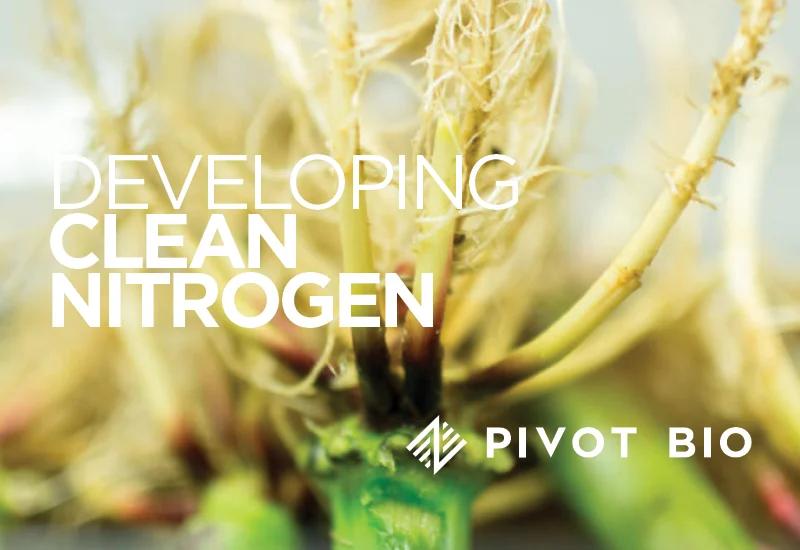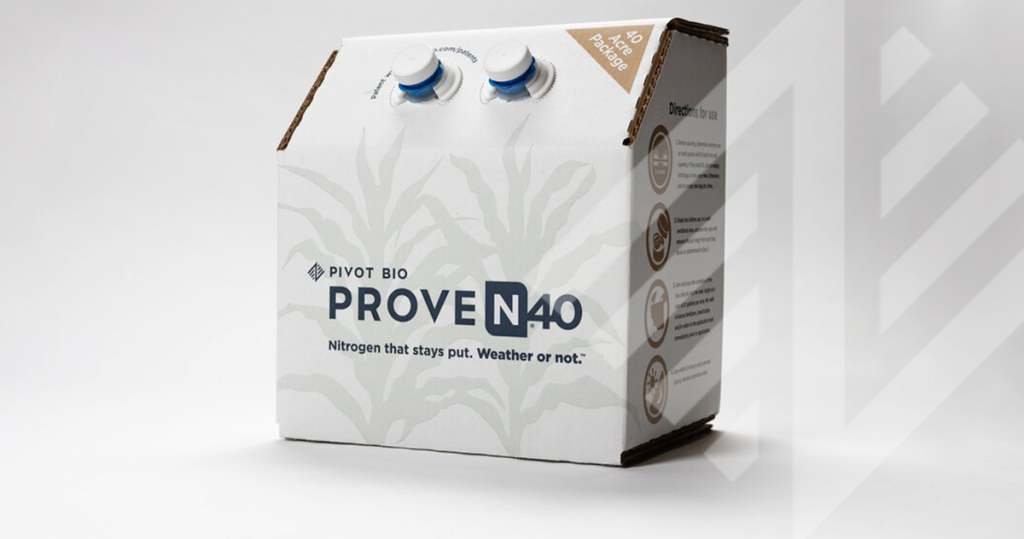Developing Clean Nitrogen

By 2050, it’s estimated the world’s population will reach nearly 10 billion people. To meet demand and feed our growing population, a recent study found we’ll need 56 percent more food by 2050 compared to 2010, which will require an additional 600 million hectares of agricultural land and likely lead to a significant increase in greenhouse gas (GHG) emissions – unless we find a more sustainable way to farm.
What is sustainable farming?
Sustainable ag depends on a sustainable fertilizer source, enabling farmers to intensify production and grow more food with fewer inputs.
Thanks to synthetic fertilizer, over the last 25 years U.S. farmers have produced 20% more food with 12% less water and 5% less land. In that same timeframe, synthetic nitrogen fertilizer use has increased 10%, and losses of synthetic fertilizer to the environment have more than tripled.
While synthetic fertilizer has been effective at supplementing soil nitrogen and boosting yields, it comes at a cost to both a farmers’ bottom line and the environment.
- Over half of applied nitrogen is lost to runoff or volatilization into N₂O, resulting in an estimated $200 billion in loss annually for farmers. This inefficiency makes farmers overspend and overuse synthetic nitrogen.
- The production of synthetic fertilizer demands substantial non-renewable energy sources to create both the intense heat and pressure required.
- Together, the manufacturing and application of synthetic fertilizer generate 2% of the planet’s total GHG emissions.
Simply “greening” the Haber-Bosch process, however, isn’t a likely solution. The process has been optimized for nearly 100 years and is operating at close to the thermodynamic minimum. And, while it is technically possible to chemically synthesize ammonia using alternative power sources, alternative sources of hydrogen, and new catalysts, these new and developing technologies are not yet in commercial use.
What’s a more sustainable option for synthetic nitrogen?
Farmers urgently need a clean nitrogen source, one that enables them to be effective environmental stewards while increasing productivity. Nitrogen-fixing microbes for cereal crops are one such solution. By providing continuous low-dose delivery of nitrogen to the crop root, nitrogen-fixing microbes have the potential to both satisfy the increasing demand for productivity and to preserve the environmental resources we all rely on. Best of all, biological nitrogen fixation operates at scale across the globe. The microbes colonize crop roots in abundance and act like little ammonia production facilities right at the root of the crop, eliminating 99.5% of the greenhouse gas emissions associated with synthetic nitrogen fertilizer production.
Pivot Bio PROVEN® is bringing this tried and true technology to farmers. On the heels of a productive 2019, Pivot Bio PROVEN® is now being used on hundreds of thousands of acres in the 2020 growing season. As we refine our products and our production process, we expect to continue to improve the GHG emissions profile of the nitrogen-microbes.
In this case, the environmental choice is the economic choice. Nitrogen-fixing microbes for cereal crops is one of the few sustainable technologies that increases nitrogen use efficiency for growers across the board. This means that Pivot Bio PROVEN® enables growers in highly productive agricultural systems to increase the profitability of their farm as they improve the sustainability of their operation.
Pivot Bio PROVEN® is the nutrient solution farmers have been looking for, a cleaner nitrogen source that stays put. Our microbes can be grown on sugar and water with next to no carbon emissions, and the nitrogen they produce stays at the root of the plant where it belongs. With nitrogen-fixing microbes, we didn’t just develop a sustainable product – we’ve created nitrogen’s turning point and a better tool for farmers across the globe.


